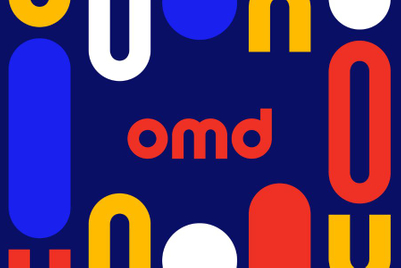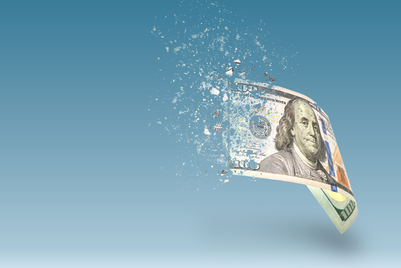No one from Omnicom, except John Wren, has the authority nor appetite to talk about the failed $23 billion merger, and de Nardis is no exception. However, OMD's global leader was in no doubt about the direction of his network going forward.
He said: "I think the priorities for OMD over the next six to 12 months are the same – focus on our big clients. We specialise on managing big, global clients, and keeping with our DNA based on innovation and creativity to constantly prove to our clients we are able to offer the best services available."
However, de Nardis, who has led OMD for the past five and a half years, did concede the current number of types of agency operating in the marcoms space made for an overcrowded and over complicated landscape.
Talking at the Cannes Lions International Festival of Creativity, which this year has seen more PR agencies attend than ever before amid the rise of storytelling, branded content and paid and earned (social) media, the 54-year-old was clear.
"If I was an alien coming from a different planet, I think I would reorganise our industry starting from the consumer, starting from the customer and the user of the product," he said.
"I would really focus on how they perceive a brand and how you build a brand for them; the marketing services or disciplines are built around it.
"I think that the way our industry is today is the opposite, because we started from the disintegration of full-service 30 or more years ago in Western Europe. So we went one way instead of going another. Still, it's always easy talking about things as an alien..."
De Nardis called on all those involved to "work together with other agencies, to integrate, and to make sure that the famous storytelling that we're all talking about can be delivered working in partnership."
Despite the increasingly merged footprints and shared interests, OMD's global chief executive said that the right path can be navigated by agencies remembering the core principles of "listening, learning and understanding what the customer is saying, feeling and experiencing," and then, "build a marketing plan around it".
On the rise of social media and the use of data, de Nardis warned against the rush to acquire more specialists and services, insisting "measurement is relatively simple."
He said: "Media agencies had become the place where data is captured, handled, managed and then it is distributed, to make sure that we can make the difference."
He added: "The last thing we need is more data specialists, because we have them coming out of ears to be honest. We, in the [media] industry, need more people who understand about storytelling and know what to do about it."
Everyone wants to win
Talking about the significance of the Media Lions awards, in which OMD Guatemala has been shortlisted for its work for 18th Zone Embassy, along with PHD Mumbai, de Nardis said: "I genuinely think that having the competition helps because we can measure work against a benchmark. It also helps to stimulate people internally to always do a little bit more, everyone wants to win.
"We're in a very competitive industry, winning is what drives it. Winning a new client, winning with a new idea, winning a big award, winning, winning, winning.
"[Cannes Lions] is always helpful because it helps bring 10,000 people together and get the best out of them, because they want to come to Cannes and win. Our clients believe in it, they ask us to organise their internal awards because they want to win as well.
"They want to see real innovation, real creativity and then distribute it across countries to make sure there's always some internal learning and competition."
However, moving forward, the leader of OMD Worldwide echoed a growing feeling among media agencies that the future lies in expanding beyond the Media Lions into the festival's new growth areas of cyber and branded content, and beyond.
"I would like us to focus on other awards, not just the media awards," he said.
"We're participating across eight other categories this year, from Integrated to Mobile. I wish that we could put the same focus on all the awards, not just the media one. That's something we've got to grow towards in the future. We're already doing it, but not as much as we should."
One Europe, one currency
Amid the growing climate of exclusivity and calls after the recent elections for the European Union to be disbanded, De Nardis, who first became a global CEO with CIA in 1993, says he is always struck by the similarities in people when travelling, and plays down the rise of nationalists.
He said: "We call it right wing because that's the place where we've defined the political participation, but I call it a protest vote.
"It's people who don't like what is happening and that find an escape in these, usually, new parties. OK, in France Le Pen has existed for a long time and it was the father before the daughter, but in the UK and Italy for example, they [right-wing parties] are a relatively new phenomenon that don't have decades of history behind them.
"They came out of protest, because things are not working as well as they should. I'm not sure those votes are going to stay and continue over time, I think they will be absorbed as long as a solution is provided."
De Nardis, speaking in a personal capacity as an Italian with a global outlook on the prevailing political trends, admits he is coming at the issue of European integration from a particular perspective.
He said: "When you talk to the world of business, it's all in favour of Europe – 100 per cent. I can't think of one of our clients who's not. It's an open economy, it makes it easier, which facilitates business. Everything is easier and more efficient. We need a bigger market; Europe is just too small to compete with the other regions.
"It's when you ask people who have suffered from the [economic] crisis, they blame Europe, which I'm not sure is the right thing. It's their own selves that have allowed Europe to go the wrong way. I think, perhaps, instead of asking for less Europe, we need more Europe.
"We've got to appreciate what we have and make it better, instead of destroying what we've built for decades
"Personally, I would like a Europe that is one country, one PM, one currency."
This article was first published on campaignlive.co.uk




.jpg&h=334&w=500&q=100&v=20250320&c=1)
.jpg&h=334&w=500&q=100&v=20250320&c=1)


.jpg&h=334&w=500&q=100&v=20250320&c=1)

.jpg&h=334&w=500&q=100&v=20250320&c=1)


.jpg&h=334&w=500&q=100&v=20250320&c=1)




.jpg&h=268&w=401&q=100&v=20250320&c=1)
.jpg&h=268&w=401&q=100&v=20250320&c=1)
.jpg&h=268&w=401&q=100&v=20250320&c=1)

